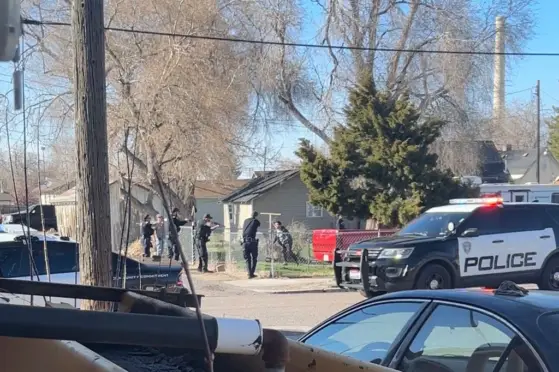Much of the debate in the cannabis space these days focuses on repairing the damages wrought by the War on Drugs on communities of color. Without these so-called equity provisions in the commercial laws for legal cannabis, left-wing activist groups lobby to block the passage of marijuana reform bills.
Yet these same groups seem eager to pass legalization measures that ignore the greatest mechanism for equity—the right of marijuana consumers to grow their own cannabis plants.
It is that right to cultivate cannabis that must now be legalization’s deal-breaker.
13–0 universal home grow medical states through 2008; 5–19 since
This epiphany happened during my research on a question posed by my friend, UK Cannabis Social Clubs activist Greg de Hoedt from London.
The first states to pass medical marijuana laws in the late 1990s and 2000s did so with the right of patients to cultivate their own cannabis. From California (1996) through Michigan (2008), the thirteen states that passed medical marijuana laws did so with home grow provisions.
But by 2010, illicit retail dispensary operations in the early medical marijuana states gained legitimacy and the legal marijuana markets were emerging, heralded by the formation of the National Cannabis Industries Association. As the push for medical marijuana moved beyond the low-hanging fruit of western states with citizen ballot initiatives, these proposals began restricting, then eliminating, any right of patients to cultivate their own medicine, in favor of highly-regulated and taxed state-licensed dispensaries.
Arizona got the anti-home grow movement in medical marijuana started in 2010 with an initiative that established a requirement that a patient live 25 miles away from a dispensary to be eligible to grow cannabis at home. A representative from Marijuana Policy Project at the time said the so-called “home grow halo” was necessary to ensure the “dispensaries would be viable.”
Since then, of the 22 other states and the District of Columbia that have added medical marijuana laws to their books, only five—D.C., Illinois, Massachusetts, Missouri, and Oklahoma—have allowed all patients to grow their own cannabis.
Only legalization has granted home grow to the patients lacking it
Of the remaining 18 states with medical marijuana laws, five don’t even allow patients to use plant cannabis, much less cultivate it. Minnesota, New York, Ohio, Pennsylvania, and Virginia only allow certain non-smokable forms of cannabis products.
The rest of the remaining baker’s dozen, including the new medical marijuana state of Mississippi, did not include home grow rights for patients in their original laws, or restricted them to just some patients, like newly-passed South Dakota, and none have since updated their laws to add home grow.
Unless you count legalization for recreational use.
Patients in Arizona within the 25-mile home grow prohibition halo—which by estimates includes about 93 percent of the population of the state—are now able to cultivate cannabis under the state’s newly-passed recreational marijuana legalization.
South Dakota’s simultaneous passage of recreational marijuana legalization means now all adults may cultivate up to three cannabis plants beginning next July.
Washington’s No on I-502 was half-right… sorry
Confirmation of the need to include home grow in legalization proposals comes from Washington State, one of the first two states to legalize in 2012. During that campaign, activists who favored legalization but opposed Initiative 502, the measure to legalize marijuana, did so partially on the grounds that it lacked a home grow provision.
Activists like me, on the other hand, argued that the first states to legalize marijuana are so important that opposition concerns could be dismissed, especially since once marijuana is legalized, there can then be further legislation to legalize home grow.
Eight years later, I am forced to admit those opponents were half-right. I will still defend the call to make history by voting to legalize marijuana, especially to do so in more than one state at a time, to diffuse any criticism that one state’s legalization is a fluke and divide any potential negative federal response.
But they were dead right about the lack of political will to further establish a personal right to home grow, especially against the entrenched lobbying interests of the legitimate marijuana industry.
New Jersey has passed a legalization referendum, but lawmakers there seem hesitant to grant a home grow right. Neighboring lawmakers in New York, Connecticut, and Rhode Island all foreshadow highly restrictive legislation for marijuana in their states.
Home grow is the ultimate social equity
That’s a disaster if your goal, as Northeastern lawmakers repeatedly proclaim, is to produce outcomes that help ameliorate the devastation wrought on minority communities by the Drug War.
Home grow is the only means by which a taxed and regulated marijuana industry can be held to account by consumers.
One disturbing paradox about the calls for social equity in marijuana licensing is that it proposes to bail out communities that had been criminalized and over-policed for selling marijuana to pot smokers by establishing high taxes on marijuana that will be paid by… pot smokers?
Maybe that’s the right thing to do, maybe not. But without the right to home grow, cannabis consumers are forced to accept that taxation. Others, unable to afford highly-taxed products, will turn to the unregulated market or grow their own illegally, once again risking arrest over a plant.
A robust right to home grow forces the marijuana industry players to keep margins and profits lower than a state that allows them a hegemonic control over the entire industry.
Without it, those players can gouge consumers and the lawmakers dependent on high tax revenues and industry lobbying will never have incentive to end the criminality of home cannabis cultivation.
After all, isn’t legalization about ending criminality, not ensuring profits?
The entire point of the push for social equity in marijuana legalization is that minority communities have been over-policed for the actions of some who grow and sell marijuana. That we should ensure that the new industry helps repair those damages is not wrong.
But if the solution to over-policing communities isn’t about ending the criminality of actions for which communities can be over-policed, we’re not really addressing the problem, which is locking people up over marijuana.
How can one be a criminal for cultivating something that is legal to purchase and own? In this country, I’m allowed to make my own homemade gun (except felons), build my own flame thrower (except in Maryland), and create my own chlorine gas (just don’t deploy it), but in New Jersey, I’d be a criminal for growing the same pot I could buy at a store?
It’s not 2012 anymore. With the federal government poised to legalize marijuana this decade and South freakin’ Dakota passing legalization with home grow, it is time for marijuana reformers to demand home grow provisions in any proposed marijuana legalization. The 2010s have shown us that home grow delayed is home grow denied.
I can’t believe it’s come to this, but these days if your proposal doesn’t include home grow, I am forced to become a Stoner Against Legalization.






